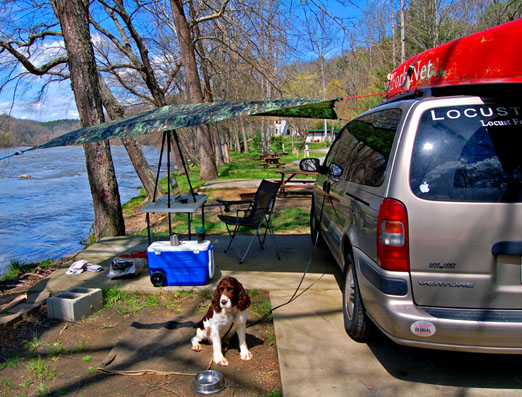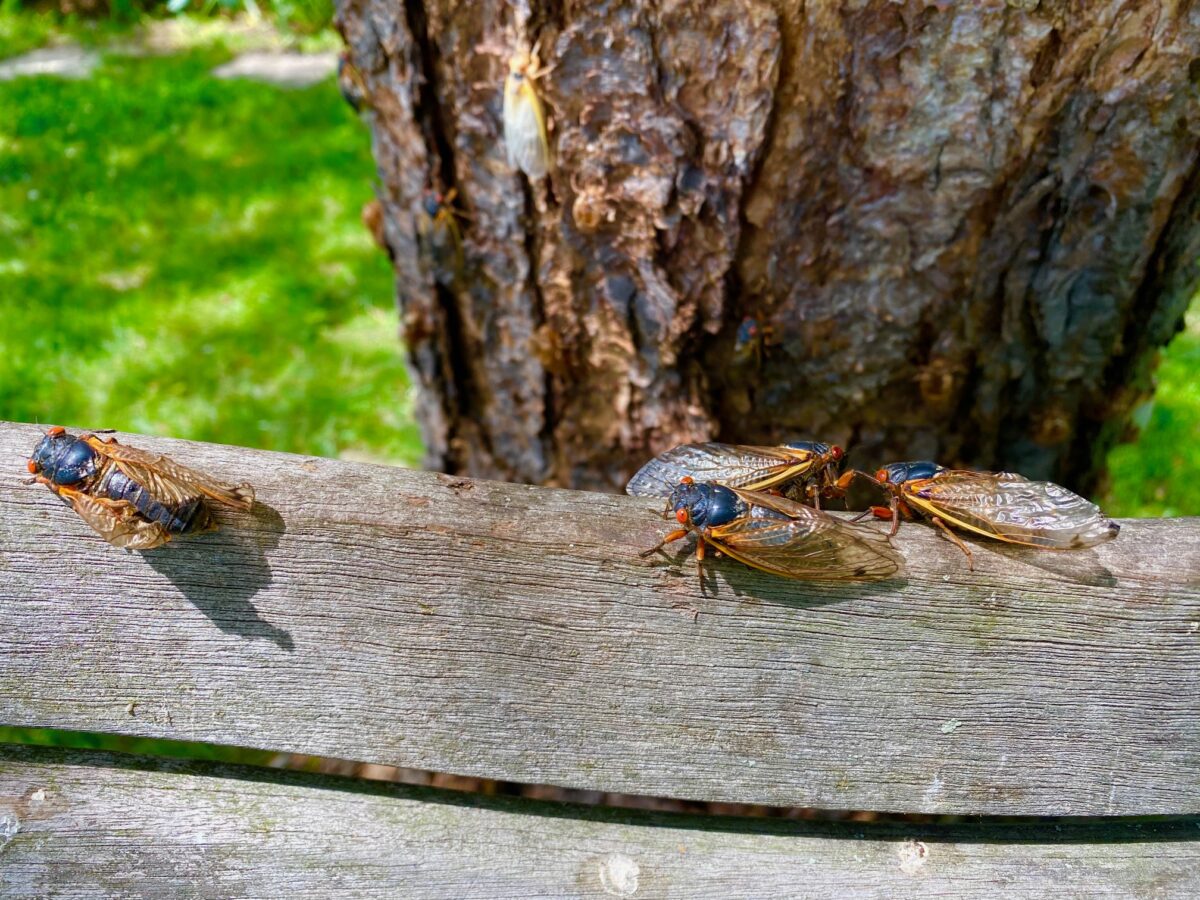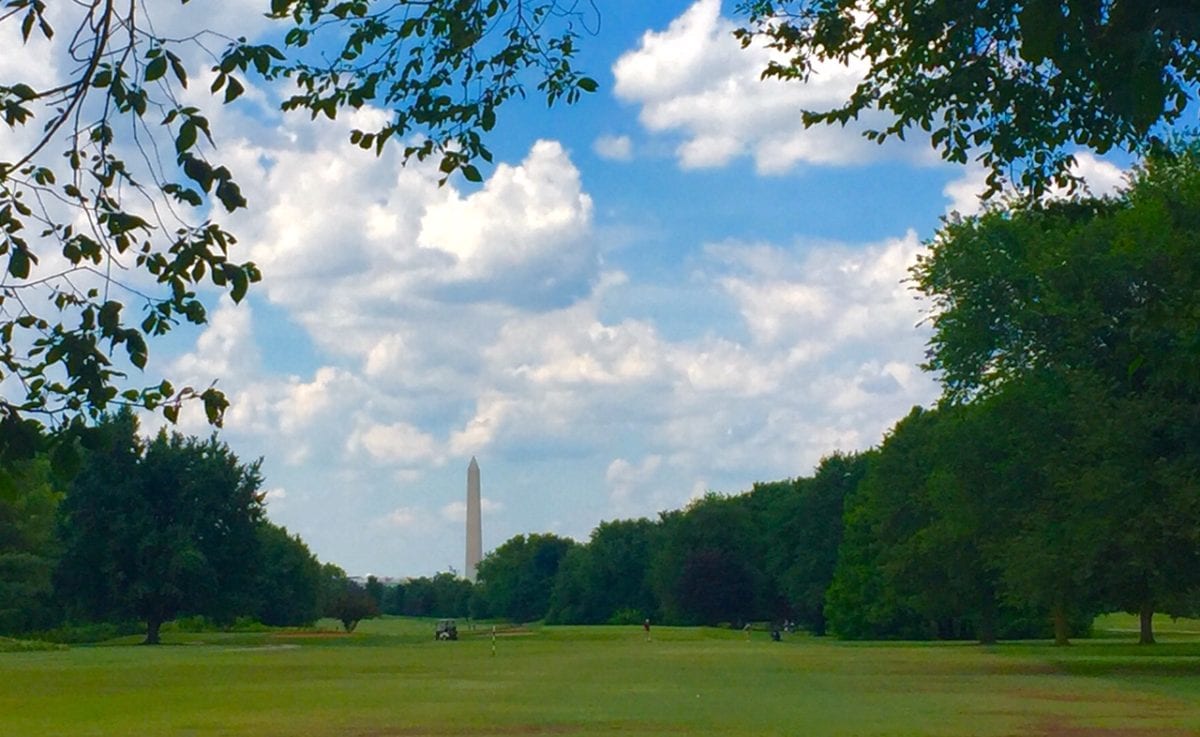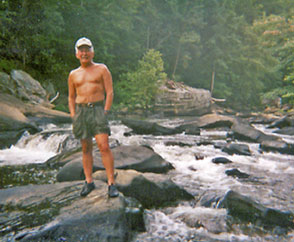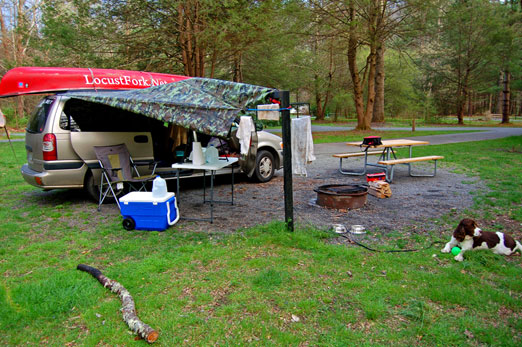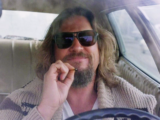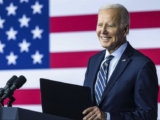The Big Picture –
By Glynn Wilson –
WASHINGTON, D.C. — Within days of moving to the nation’s capital in 2004, I was the last reporter hired by States News Service operating out of a cool newsroom on Pennsylvania Avenue, a couple of blocks from the White House. It was right near a Metro tunnel, so the commute across the river on the train was easy.
I would finally get a chance to really learn the town at the street level in a way I could describe in a novel, something I had been thinking about since 1992.
“Editor’s Note: In 1992, while working as a staff writer and reporter for a chain of newspapers on the Gulf Coast, I stumbled onto a dangerous story involving electromagnetic fields and pulses being developed by Naval Intelligence in Pensacola, Florida. The stories I wrote about it were so controversial that a rogue agent working for the CIA managed to get himself hired as my editor. I’m not making this up. His name was K. Lee Lerner and he later conned his way into Harvard and went to work for the CIA in France.”
Operation Zap: A Novel and Film by Aaron Murphy
The work for States was covering stories for newspapers all over the country, doing specialized wire service style stories for the folks back home even AP wouldn’t tackle, like focusing on a member of Congress in Wisconsin or Cleveland, and legislation of interest to their constituents.
Other free-lance opportunities also came along.
One day on a whim I called the national editor for Time magazine, and got him on the phone.
“You may or may not remember my name for my work on the Bush AWOL story,” I said, “and I don’t want to get anybody into trouble or anything. But you do realize your freelance writer totally stole the ‘Texas soufflé’ nickname for Bush for your lede, giving me no credit, which I uncovered in an original interview.”
Give it a second.
“So I just moved to town and wondered if you might be able to toss me a free-lance bone or two?”
“Let me get back to you on that,” he said.
An hour later, he called back.
“How soon can you be in Cumberland, Maryland?” he asked.
I said, “I don’t know, about an hour and a half?”
Jump on the bus.
He assigned me to go immediately to Cumberland to investigate the guards in the three prisons in town, where all the guards were from at the infamous Abu Ghraib prison in Iraq. The story was just breaking.
I spent a week there, described the place, interviewed people about the place and the guards, and put together a full list of the National Guard soldiers from there who were implicated in the torturous conditions at Abu Ghraib. It paid $800, plus expenses for the hotel and mileage. Not bad.
This could work, I thought.
It was the spring and summer of 2004, when the cicadas showed up by the millions in the 17 year cycle. It was like a plague upon the land, almost Biblical.
We partied right through it all, often at The Irish Times pub on the Senate side of the Capitol, an old press bar. These days there are not that many reporters in town, like there used to be when newspapers all over the country had their own Washington correspondents. So it’s just a neighborhood Irish pub now. But it is very close to the headquarters of NBC, CNN and C-SPAN. Street parking is free on Sundays. I recommend the fish and chips, a dark beer and a shot of Old Bushmills Irish whiskey.
In those days I rode everywhere on a Cannondale mountain bike. It was 14 miles from my apartment in Alexandria to the National Mall in D.C. It felt easy to get into town, since it was mostly downhill. The train was better for getting home, especially if you stopped by the bar. It was uphill much of the way back. You could take your bike on the train.
It was a tense yet interesting time to be in Washington, with the Iraq War in full swing. When the former President Ronald Reagan died on June 5, I got assigned to cover that for the Wisconsin State Journal, a well respected newspaper at the time.
It was a funny story, the way I got assigned to cover it. Sometimes editors have goofball ideas.
This one wanted me to go down to the National Mall, where all the people were gathering waiting for something to happen, and see if I could find anyone there from Wisconsin.
I’m like, “really?”
Thinking to myself: You expect me to find someone in that crowd from your state? How?
I said, “sure thing,” and hung up.
Me and my friend Brooks Boliek laughed out loud. He was the Washington bureau chief for The Hollywood Reporter at the time, having the time of his life, but he got his start in D.C. at States News Service, now defunct.
He gave me one of his reporters pads, a pen or two, and said “have fun. See you later at the bar.”
I laughed all the way there. As I was walking through the amazing crowd on a near perfect June day, I sat down on a bench, focused on the green grass, and tried to think. How would you find someone from Wisconsin in this melee of people?
In my mind there sprang up an image from the past, of a carnival barker, trying to lure a crowd in to see a risqué show.
Words began to come to me.
“Wisconsin.”
Louder.
“Anybody here from Wisconsin?”
I swear it worked. Within minutes I found and interviewed a couple of families, then sat down on a bench and wrote it up with a pen on paper. Armed with my first cell phone, which I obtained for the field in New Orleans in 2002, I called in the story sitting right there in that crowd myself.
Reagan was dead.
I needed a drink.
Things went on that way for awhile, and I got to play some of the great golf courses around, like Hains Point, where you are standing on the T-box aiming at the Washington Monument on many holes. And it was still on a cheap public golf course, where the “everyman” could play, even if you were a woman of color.
Democracy at its finest.
Who knew how long this run would last? Did a god in heaven? I don’t think so.
Somehow, I was discovered in D.C. when the alternative weekly Creative Loafing out of Atlanta was looking for a correspondent to cover politics across the South. The editor said I was the number one choice, no doubt about it. She said they had the money to pay me to do the job. I believed her.
It sounded great, almost perfect, and the money would be right for the region.
“OK,” I said. “I’m packing up my stuff and headed your way.”
I rented a van and packed, turned down another six month extension on my lease in Alexandria, and drove to Atlanta for the interview. The office was located in Buckhead, not far from Little Virginia Highlands, an area I knew from hanging out at the Olympics in the summer of 1996. I could see myself living around there somewhere.
While they thought about it, I drove to Birmingham to see my mom, at that time still living by herself in the house she had lived in since 1960. She was 79-years-old.
While waiting a couple of weeks to hear back from Atlanta, I visited my mom and evaluated how she was doing. She told me a story about a Black man with a gun hollering in the street in front of her house one night. It scared her, visibly as she told it to me. The neighborhood where I grew up had been invaded by people moving out of the city and into the suburbs. It was no longer such as safe place to live.
She also had health problems, and came down with something mimicking mononucleosis or mono. She could hardly get out of her Stratolounger to fix dinner for what turned out to be about four months. She had been sleeping in the recliner for years, in front of the television, half sitting up. It’s actually a pretty healthy position to sleep in, which may be one reason she lived to be 93 and didn’t die in her sleep sooner.
It was nearly excruciating, waiting.
So I took over the cooking, and other household chores for her, and waited for the phone call.
It finally came. It turned out the Cox News company, which owned the Atlanta Journal-Constitution newspaper and a 25 percent stake in Creative Loafing, was hurting financially and wanted its 25 percent stake in cash out immediately. So there would be no one traveling around the South covering politics. They did hire a younger reporter for less just to cover Atlanta and some Georgia politics.
But I had another excruciating decision to make.
Did I pack up and go back to D.C.? Or face the obvious that my mom had no business living in that house in that neighborhood anymore alone? It was either the old folks home, or I move back in and somehow figure out how to make a living free-lancing in my home town. It was just not the news market of a D.C., a New Orleans, or even an Atlanta. It would be hard.
But, I figured, the internet is coming along. Web publishing is getting better. More people are paying attention. At that time it was the early days of blogging and the bloggers, which I considered beneath the level of real newspaper reporters.
So I stayed. Living would be cheap. I wouldn’t have to make much money. I would have the time and freedom to get creative online.
Scrushy HealthSouth Trial
Not long after that fall, in the winter of 2005, an editor with the Business section of The New York Times called and asked me to help cover the HealthSouth trial of Richard Scrushy. It turned into seven weeks of work at $25 an hour, plus mileage to and from the courthouse and a meal allowance. We had steaks on Mr. Sulzburger one more time. Not bad.
I helped produce an advance story on the trial, worked with the copy desk and even the photo department and the map team. Then I covered the day to day story for the Times and got full byline credit on daily stories, including this one featuring the star witness.
Ex-HealthSouth Officer Testifies About Meeting Boss on Lake
But at one point the Times brought in a correspondent from Houston to do some work on the story, and he didn’t really know what he was dealing with. I helped him the best I could, but he and a novice free-lance photographer messed up one good story that was my idea, covering Scrushy speaking at the Guiding Light Church on Roebuck.
I had scouted the place. There was a federal Savings and Loan bank in a trailer right next to the church, which was used by Birmingham Mayor Richard Arrington and attorney Donald Watkins to get people low-interest or even interest-free loans to move from decrepit housing downtown to the suburbs east of town. Scrushy donated a million dollars to the church, and used it to influence the jury pool. He was scheduled to speak at the church one Sunday night during the trial, but canceled when this correspondent and the photographer with a giant telephoto lens were spotted hanging around in the church parking lot before the service.
If they had just let me handle it, I could have gotten in and done the story and gotten the photo. They just had to bring in a novice correspondent and free-lance photographer. We did one more big news feature on Scrushy anyway, talking about how he and his lawyer Watkins used the church to get a sympathetic jury. But the correspondent asked me to go back to the courthouse one more time to ask Scrushy’s PR guy Charlie Russell another question. I did it, and got the quote he needed. I charged them for another day.
But in the process, I got hassled by the U.S. Marshall guarding the back door to the courthouse, where there was an outdoor seating area used by employees for breaks and smokers. The guard didn’t want to let me back in the courthouse, because I was not wearing a press credential badge. The first Times correspondent to write about the trial, a woman writing for the Health section, spent very little time in town, and never obtained press credentials for us to cover the trial. It was too late by the time they called me to help. She showed up once for a couple of days and went to the courthouse once for maybe an hour, spending most of her time on her laptop in a fancy room at the Tutwiler Hotel. This caused me a problem. I had to get to the courthouse early every morning and stand in line with everybody else to make sure I got a seat in the small federal courtroom.
Here is the story the Houston correspondent produced. I got a contributor credit on the bottom of the story.
Will the Real Richard Scrushy Please Step Forward
I was a little pissed off, so I sent out an email to a few people the Business section editor didn’t like. The son of a bitch actually called me and had the gall to question my character. Fuck him. He didn’t last long at the Times anyway. He was a conservative guy hired from The Wall Street Journal to try to help make the Times Business section competitive. It didn’t work. In fact, the Times started losing money in 2005, and tried using a paywall to charge for content. It didn’t work either, and by 2007 they scrapped it.
Scrushy would go on to be acquitted in that trial and only later convicted in a new trial in Montgomery, when the Bush Justice Department put him on trial with former Alabama Governor Don Siegelman, a story I covered for five years for The Locust Fork News-Journal and The Nation magazine.
The copy editor I worked with on the trial stories let me know they were not going to use me any more after that anyway. They could not afford me. When the $5,000 check came in, I found a Chevy Voyager LS van for sale for $4,000, with a canoe rack on top. I also traded in the crappy $500 Toyota Corolla I purchased to drive downtown to the Hugo Black Federal Courthouse every day to cover the trial. There was money left over for a canoe.
The Locust Fork News-Journal
After that I took a few days off to think. I took out the back seats and put a futon mattress in the back of the van, and took a camping trip. I also got the canoe in the water. I was trying to think of a name for a blog, something inspired by my good friend Spider Martin, the photographer, and all those white water canoe trips we took together down the Locust Fork of the Black Warrior River. He had come up with the idea after all, telling me we should develop a way for people to immediately make comments on stories you post online. He did not live to see it, but that’s another sad story I’ve told elsewhere. He had his own setbacks, unfulfilled hopes and shattered dreams.
Selma the Film: Clearing Up the Controversies
The name I came up with was LocustFork.Net. Not after the town, but the river, or the kind of thinking that transpired there. We did, after all, stop a dam on this little free-flowing river, and I did play an important role in that effort. It represented the kind of journalism I wanted to practice, the kind that makes a difference. Not just rewriting the press releases, or quoting the powerful. The kind of stuff I learned to do in Gulf Shores in the 1980s and early ’90s.
My mom and I managed to make it living together for nine years, until her dementia began to grow sever, with her eyesight mostly gone. It had been years since she could balance a check book. She had been a bookkeeper, which is one reason she was able to keep a house going after my dad died. She could manage money, but not after she lost the ability. So I took over and got most of her bills setup on auto pay online and kept track of her accounts.
She had great credit, my mom, some of it built in part by me. She was honest as the day is long, like me, and she never really went anywhere much or spent any money. But after the NewsBreak closed down, and my credit took a hit, I got her to borrow some money here and there for me, to buy new computers and cars and such. It was all paid back on time, every penny.
I started experimenting with an html news links front page with a blogging interface on the back end, and the site became known as The Locust Fork News-Journal. Some people thought it was the merger of two newspapers. But it was the merger of two ideas. News and journaling. Another trend in “new journalism.”
Some stories were told straight. Some were more in-depth, more essays than news stories, explanatory journalism for sure. Many were narratives told from the author’s perspective, like Hunter S. Thompson putting himself at the center of the action. It was a new thing. The technology itself dictated that it would be.
I mean the thinking was, why practice all the same old boring AP style, two-sided fair and balanced journalism, when what the people yearned for was more insightful writing, something with meaning and a purpose behind it, maybe even a mission. Why not? Even 19th century newspapers took up causes, on the front page as well as the editorial page. This was new and nearly free and fast, but it was based in solid American journalism traditions. I mean the Pulitzer Prize has a category for “Public Service” journalism.
Why did some people think it was so weird at first? Because it threatened the print status quo, that’s why. The newspaper owners, publishers and editors should have seen it coming. They did not. They were arrogant and short-sighted.
By the time people were getting used to blogs, social fucking media came along, and blew everything else out of the water.
By the time I joined Facebook in 2009 after the 2008 presidential campaigns, the media world was in an uproar all over again. Some with lucky timing and a good idea profited from the traffic you could build with a social media audience, like the Huffington Post. I also used it to build a larger audience for my site, and it helped gain sponsorships from lawyers, unions and environmental groups, a few politicians.
After nearly a decade of that, I was ready to move on from the idea of blogging and put up a news site to cover news, the New American Journal. My mom needed to be in a retirement community, so we found one and put the house on the market. The real estate economy had come back from the Great Recession, so it was time. I was ready to go back and try D.C. one more time. This time on the cheap, in a Roadtrek camper van modified into a media van.
Regular readers already know all about that story, and where we are now. So I’ll just declare The End for now.
You can see from this series how my life has been filled with much success along the way, with some good timing and some bad. But like any life, maybe most lives, there have been some unfulfilled hopes and shattered dreams from time to time. No matter how many times I’ve been knocked down, however, so far I’ve always managed to get back up and go on to something just as fun and rewarding, always trying to serve the purpose I seem to have been born for, my calling, to make a difference as a news writer.
I do not and never have claimed to be the best writer in the history of the goddamned world. I’ve tried writing fiction a few times, but so far it’s never worked out. I think I would be good at writing screen plays for films, but so far the right opportunity has not presented itself. So I will just keep on writing news, as long as I can make something of a living doing it.
Like all those who Martin Luther King talked about in that great sermon in Montgomery, I’ve made it this far due to “the exercise of a great and creative will.â€
“And whenever a man comes to this point, he brings reality into the very center of his existence, and he brings new meaning and delight in the universe,†King said.
I think that’s true.
“And you know, strangely enough when you come to this point, you don’t worry about suffering,” he said. “You don’t die because you don’t get to Spain. You come to see that suffering might make you stronger and bring you closer to the Almighty God.â€
Part 1: On Unfulfilled Hopes, Shattered Dreams
The Future
I don’t know about God Almighty, or what the future will bring. All I know is that in October, I’ll turn 66, and in February, the New American Journal will be 10 years old. That will be longer than anything else I’ve ever done in my life.
I’m hankering for a change, and it may mean it’s almost time for that big final trip out west, to chase my own Manifest Destiny.
We will see what happens. Hopefully we can get this Trump situation resolved soon, and maybe the future of democracy will seem on safer ground.
I need a long vacation under a Redwood tree, or a giant Sequoia. California here we come — if I can make it out of here alive.
See you down the trail somewhere, sometime, somehow.
If these stories are somehow informative and entertaining for you, please keep supporting this work financially. Facebook and Google are certainly little help these days, and all the ad money has moved there. None of it pays any reporters to cover news, or hold anyone accountable.
Can democracy survive Trump and social media?
Only time will tell.
___
If you support truth in reporting with no paywall, and fearless writing with no popup ads or sponsored content, consider making a contribution today with GoFundMe or Patreon or PayPal. We just tell it like it is, no sensational clickbait or pretentious BS.


